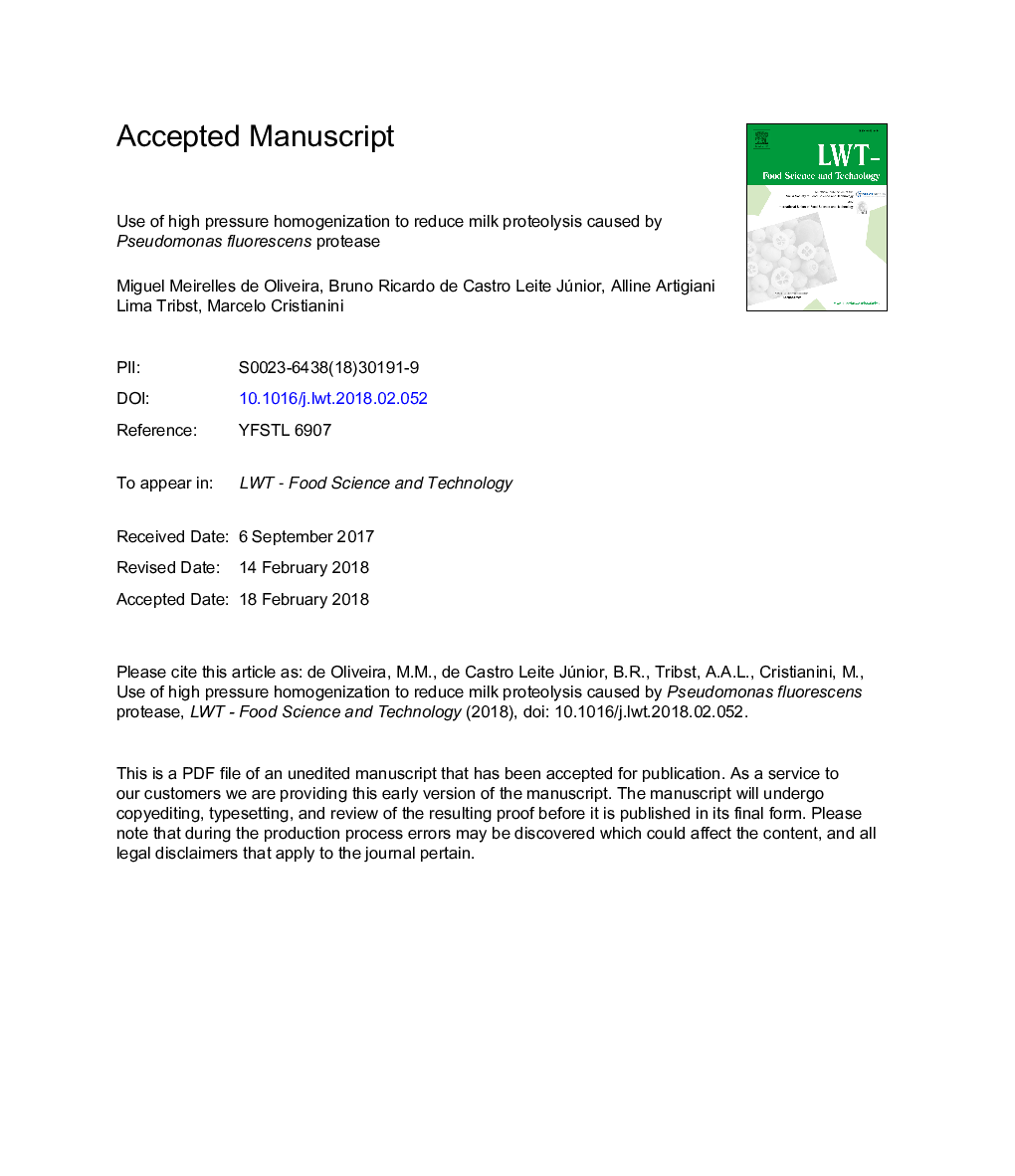| Article ID | Journal | Published Year | Pages | File Type |
|---|---|---|---|---|
| 8891421 | LWT - Food Science and Technology | 2018 | 16 Pages |
Abstract
The growth of proteolytic microorganisms in raw milk is favored when the milk is stored at abusive refrigeration temperatures for many days. The proteases produced, especially by Pseudomonas genus, are heat resistant, and can induce problems in dairy products on a long term basis, such as age gelation in milk processed by UHT systems. This work evaluated the impact of high pressure homogenization (HPH) processing at 100 and 150â¯MPa on milk proteolysis during storage, considering that this emerging technology can alter the structure of the milk constituents and enzyme activity. HPH (up to 150â¯MPa) was incapable of inactivating the Pseudomonas protease and did not alter the occurrence of proteolysis in skimmed milk. On the other hand, positive effects of HPH were observed for standard milk (3% fat) samples, with reductions in proteolysis of 29 and 51% for samples processed at 100 and 150â¯MPa, respectively. The practical impact of this effect was delays in age gelation of at least 23 (100â¯MPa) and 40 days (150â¯MPa) for milk with 3% fat. A microstructural evaluation inferred that fat globule fragmentation and its subsequent adsorption by protein was the main factor responsible for the reduction in milk proteolysis.
Keywords
Related Topics
Life Sciences
Agricultural and Biological Sciences
Food Science
Authors
Miguel Meirelles de Oliveira, Bruno Ricardo de Castro Leite Júnior, Alline Artigiani Lima Tribst, Marcelo Cristianini,
